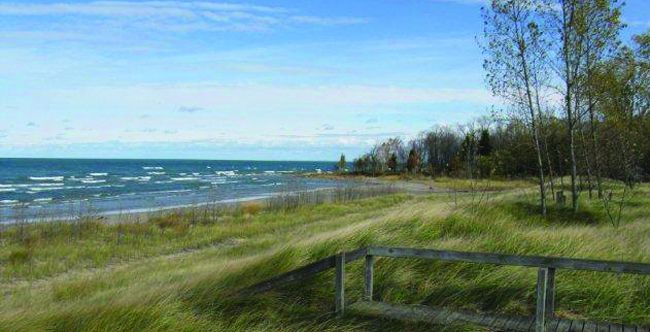Ipperwash: like it happened yesterday

By Maurice Switzer
Time can play tricks on us.
What seems like a hurry to some is a snail’s pace to others.
We want enjoyable moments to last forever, and uncomfortable ones to be as brief as possible, so time can seem like both a friend and an enemy.
The gift of patience – the ability to persevere – is a blessing for people trying to create change, whether in themselves, their community, or their nation. Transformation never comes quickly.
In late October the film “Suffragette” will be released starring actress Meryl Streep as Emmeline Pankhurst, the stubborn Manchester activist who served repeated jail terms over 56 years before Britain extended women the same voting rights as men.
Martin Luther King and Mahatma Gandhi devoted their lives – literally – to advance the cause of human rights in campaigns that spanned decades.
While it seems that noble causes seem to move at a snail’s pace, we have to remember that – as a man named Einstein once observed – time is relative.
A group of teachers visited North Bay this summer to gain more insight into why it’s important that Canadians learn more about Indigenous peoples and issues, and how best to deliver curricula on those topics. They were members of the executive of the First Nations, Métis, and Inuit Education Association of Ontario, a subject association that includes about 1,300 teachers, some of whom have never met or spoken to a single one of the 1.4 million First Peoples who live in Canada.
As a group, teachers do not need to be persuaded that too many Canadians have graduated from schools with precious little knowledge about their country’s true history: the good of treaty relationships that preserved national security by repelling American invaders in 1812; the bad of broken promises that condemned First Peoples to perpetual poverty; and the ugliness of Indian residential schools – a blemish on Canada’s past that rivals genocides in global communities seen as far less civilized.
And educators understand better than most that the best way to ensure brighter futures is to learn from mistakes of the past. In Canada’s case, a good first step would be for the country’s citizens to push their legislators to adopt the 94 Calls to Action of the Truth and Reconciliation Commission, recommendations that – if acted on in a comprehensive manner – could enable First Peoples to become true partners in Confederation, a relationship that would entail benefits for everyone within the country’s borders.
Among the commission’s recommendations are those calling on all levels of government to make mandatory the study of Canada’s true history – the good, the bad and the ugly. It is as inconceivable that any student graduate from high school in this country without knowing about Treaties and Residential Schools as it would be for a student in Germany never to learn about their country’s role in World War II and the Holocaust.
The teachers visiting North Bay met some outstanding Indigenous role models during their stay, and also heard that racism against First Peoples up here is the equivalent of what they hear from yellow and black students back home in their communities.
Like most people who want the world to change – like Gandhi, and King and Pankhurst – teachers are anxious for situations to improve. Many feel progress is painstakingly slow.
So we talked about time.
Scientists say the earth has been here for about 4 billion years. They say human-like beings have been on earth about 200,000 of those years. First Peoples say we have been in this place called Turtle Island since time immemorial – maybe 30,000 years. The first Europeans arrived on our shores a mere 1,000 years ago. (Some of our traditional teachers believe we are still in the early stages of what historians call “Contact”.)
Canada has only been a sovereign state for 148 years. The Indian Act came into force nine years later.
Twenty years ago this week the then-premier of the province of Ontario – Michael Deane Harris – told members of his cabinet “I want the f….ing Indians” out of my park”, after unarmed protestors occupied Ipperwash Provincial Park near Sarnia to protest an unresolved half-century-old land claim. Hours later, Sgt. Kenneth Deane shot and killed unarmed protestor Anthony Dudley George.
And now in 2015, a group of schoolteachers are meeting in a room in the very riding that elected Conservative Mike Harris to the Ontario legislature, discussing how to deliver lessons to students that might help prevent any similar tragedy from ever occurring again.
When you take into account the last 4 billion years, things are actually happening very quickly.
Maurice Switzer is a citizen of the Mississaugas of Alderville First Nation. He operates Nimkii Communications in North Bay, delivering public education workshops on First Nations issues.


